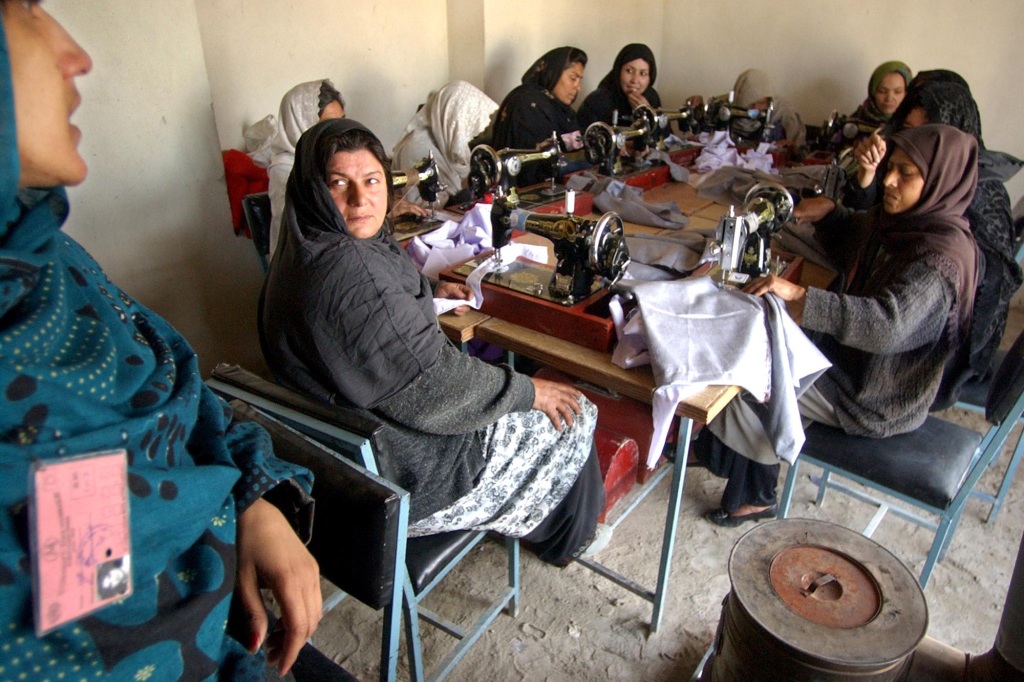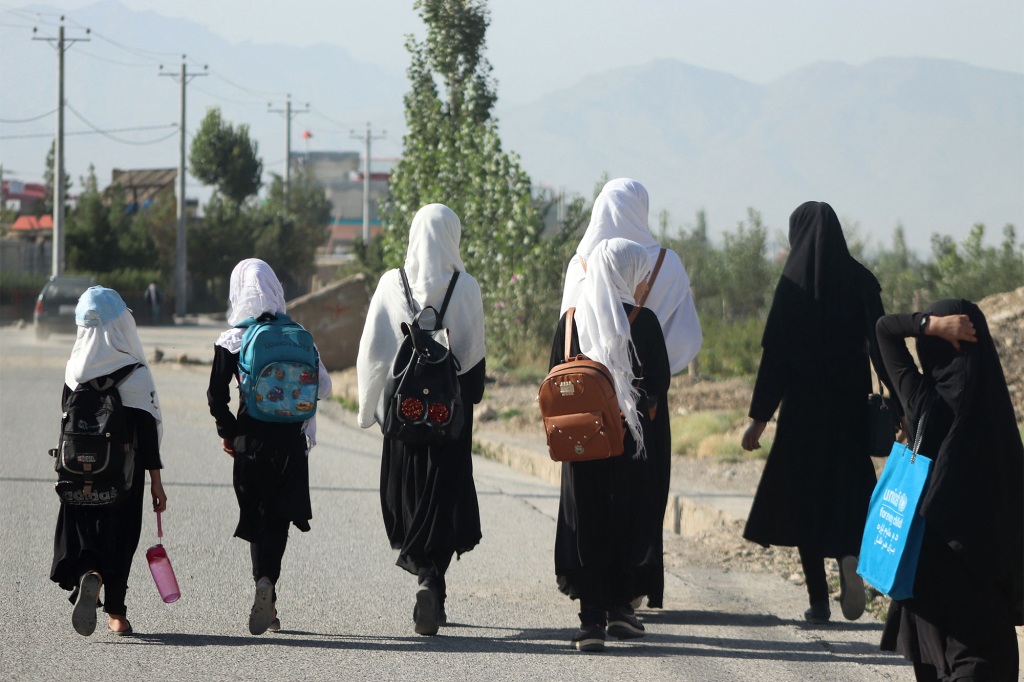Taliban orders NGOs to suspend women employees over headscarves
In yet another crackdown on women, Afghanistan’s Taliban government on Saturday told all non-governmental organizations in the country to suspend their female employees – supposedly because some of them wore the Islamic headscarf incorrectly.
It was not immediately clear if the order applies to all women or only Afghan women working at the NGOs.
At the same time, the Taliban said women could no longer attend religious classes at Kabul mosques.
Saturday’s orders came just three days after the Taliban announced they’d no longer allow women to attend universities. Girls have already been excluded from secondary schools since the Taliban returned last year and there is some fear that the Taliban will eventually force women to stay at home.
Afghan women have been protesting against the ban in major cities – a rare and dangerous move, given that the Taliban seized power over the entire country last year.
On Saturday, Taliban security forces used a water cannon to disperse women protesting the ban on university education for women in the western city of Herat, eyewitnesses told The Associated Press.
Women also staged protests in Kabul last week, the BBC reported.
The new NGO order came in a letter from Economy Minister Qari Din Mohammed Hanif, which said that any organization found not complying with the order will have their operating license revoked in Afghanistan.
The ministry said it had received “serious complaints” about female NGO staffers not wearing the “correct” headscarf, or hijab.
“It’s a heartbreaking announcement,” said Maliha Niazai, 25, a master trainer at an NGO teaching young people about issues such as gender-based violence. “Are we not human beings? Why are they treating us with this cruelty?”

Niazai, who works at Y-Peer Afghanistan and lives in Kabul, said her job was important because she was serving her country and is her family’s sole breadwinner.
“Will the officials support us after this announcement? If not, then why are they snatching meals from our mouths?” she asked.
Another NGO worker, a 24-year-old from Jalalabad working the Norwegian Refugee Council, said it was “the worst moment of my life.”
“The job gives me more than a … living, it is a representation of all the efforts I’ve made,” she said, declining to give her name fearing for her own safety.

Countries all over the world have spoken out against the university ban, including officials from Muslim-majority countries such as Saudi Arabia, Turkey, the United Arab Emirates and Qatar. The U.S. and the G-7 group of major industrial nations have also warned Afghanistan that the policy will have consequences for the Taliban.
An official in the Taliban government, Minister of Higher Education Nida Mohammad Nadim, spoke about the ban for the first time on Thursday in an interview with the Afghan state television.
He said the ban was necessary to prevent the mixing of genders in universities and because he believes some subjects being taught violated the principles of Islam. He said the ban would be in place until further notice.
The Taliban promised women would be treated fairly after they came back to power in Augiust 2021 after two decades of U.S.-backed rule. But they’ve increasingly imposed their interpretation of Islamic law, or Sharia, all over the country since then.
With Post Wires
Read the full article Here


